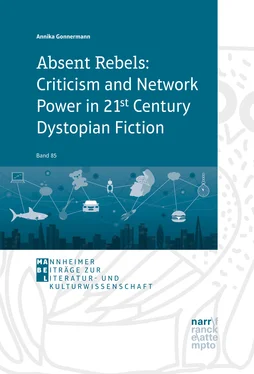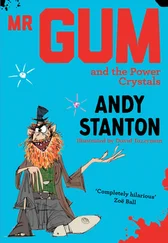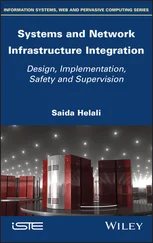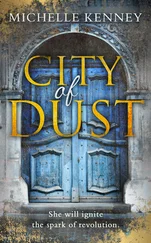2. The History of Dystopian Fiction
The Golden Age is the most unlikely of all the dreams that have been, but for it men have given up their life and all their strength, for the sake of it prophets have died and been slain, without it the peoples will not live and cannot die. (Dostoevsky, A Raw Youth 501)
Utopian fiction is a highly self-reflexive genre aware of its rich, dense tradition, its canonised conventions, and its modes of production and reception. To understand this genre, it is imperative to comprehend its intrageneric connections, relations and criticism as well as its long tradition reaching back to the very roots of Western philosophical thought, both in the form of Greek philosophy and Judeo-Christian spiritual writings (cf. Han, Triplett, and Anthony, “Introduction” 3).1 It permeates “a sense of [its] own specific tradition [i. e.] by the writer’s consciousness of what has gone before” (Ferns 16f.). Yet, as Bernd Schulte-Middelich asserts, not only authors are expected to be versed in the canonised conventions of the genre but readers are subject to the same high demands (cf. 40): utopian writing expects its audience to be well read in the tradition and history of both subforms, eutopia and dystopia. In order to fully grasp the rich allusions and ongoing intertextual debate about the nature of the radically different community , to borrow Suvin’s words once more, readers are advised to start their research at the beginning of the tradition (cf. Villgradter and Krey 353f.). Dating back to 380–370 BC, Plato’s Politeia, a philosophical tractate written in the form of a Socratic dialogue, is one of the first fictional texts dedicated to the description of an ideal society that should secure a peaceful and perfected co-existence of all citizens of the state (cf. Pfister and Lindner 17; also Ferrari and T. Griffith xxiii.)2 This society is governed by so called ‘Guardians,’ an “enlightened elite of specially trained, philosophically minded thinkers” (Booker and Thomas 75) tasked to watch over the strict moral and conduct rules introduced to foster a radically more perfect society: “there is no end to suffering […] for the human race, unless either philosophers become kings in our cities, or the people who are now called kings and rulers become, in the truest and most complete sense of the word, philosophers” ( Politeia 175). Offering thoughts on the distribution of wealth, the institutionalisation of freedom, and the avoidance of oppression, Plato’s Politeia has been classified both as a work of moral and political philosophy (cf. Ferrari and T. Griffith xxiii), which continues to inspire political philosophy, ethics, and of course, utopian writing to this day.
Despite its roots in ancient Greece, eutopia’s modern formulations constitute “an extension of the Enlightenment belief that the judicious application of reason and rationality could result in the essentially unlimited improvement of human society” (Booker, Impulse 4).3 Thomas More’s already mentioned fictional travel report Utopia (clearly written in the tradition of Plato’s Politeia , cf. Booker and Thomas 75) is thus usually considered to be the origin of eutopian writing. Reviving the tradition at the beginning of the 16 thcentury, Thomas More invents the character Raphael Hythloday (i.e. speaker of nonsense) to describe an ideal state system, lecturing his intra- and extradiegetic audience on the ideal construction of a given society in terms of governance of citizens, distribution of wealth, or warfare (a badly hidden critique of England’s society in the 16 thcentury; cf. Assheuer 45).4 Some ideas still resonate with contemporary readers, for instance More’s revolutionary claim that everyone should be provisioned with basic supplies, foreshadowing the current discourse about social welfare and benefits: “where all things be common to every man, it is not to be doubted that any man shall lack any thing necessary for his private uses, so that the common store, houses and barns, be sufficiently stored” ( Utopia 119). Moreover, his plea to introduce proto-communism in the rudimentary form of “equal and just distribution of things” can rightfully be seen as revolutionary for his times (cf. Grace 186f.; also Bruce xxi), challenging Christian doctrines and monarchy itself, and still attracts considerable attention within contemporary debates about the introduction of a universal basic income.
Yet, despite their origin as eutopias, both texts, Plato’s Politeia and More’s Utopia introduce a rather restrictive system of governance, annihilating individual preferences and imposing restrictions on nearly every aspect of human life, such as working and leisure time, marriage and even eugenics in order to secure a peaceful and functioning co-existence of all citizens (cf. Utopia 89f.). Plato, for instance, writes that “the best of either sex should be united with the best as often, and the inferior with the inferior, as seldom as possible” (quoted in Petzold 333). Passages like these of course scare off 21 st-century readers because they read like an instruction of livestock breeding and are hard to stomach for an audience familiar with the atrocities committed in the 20 thcentury. The reason these texts are still being read is only because of the “ historical-space-time of [the] text’s inception” (Suvin, “Theses” 189, emphasis in the original), granting them a certain benefit of doubt: although they have (partially) aged badly, they are still recognisably intended as explorations of radically more perfect communities and have inspired generations of writers to follow their example.5
Nowadays, More’s Utopia is recognised as the starting point of the development of various imaginary state descriptions, which have approached the phenomenology of the perfect city/state/community in their own respective ways, tainted by socio-cultural developments of their time of origin (cf. Weber 5; also Murphy, “Eutopia” 478). Customarily thought to be the most immediate reaction towards More’s work is Francis Bacon’s New Atlantis (1627) (cf. Pfister and Lindner 15). Regarded as a worthwhile addition to the canon, the unfinished text by the founding father of empirical science is characterised by a scientific approach to social and political problems and the imagination of “new sciences and technologies yet to become reality” (Mohr, “Eco-Dystopia” 283). It has been called “one of the most optimistic imaginative projections of the beneficial impacts that science and technology might have on human society” (Booker, Impulse 5) because of its undivided focus on ethics and technology changing life for the better (cf. Murphy, “Eutopia” 479). “Bacon projects a highly specialized, unequal but affluent and efficient social order” (R. Williams 99; cf. Erzgräber, Utopie 14) into his eutopia set on an isolated island reminiscent of Arcadia. His city is governed by a benign king, Solamona, who “was wholly bent to make his kingdom and people happy” ( New Atlantis 165). Favouring the arts and sciences, the king founded the island’s first university:
Ye shall understand (my dear friends) that amongst the excellent acts of that king, one above all hath the pre-eminence. It was the erection and institution of an Order or Society which we call ‘Salomon’s House’; the noblest foundation (as we think) that ever was upon the earth; and the lanthorn of this kingdom. It is dedicated to the study of the Works and Creatures of God. (ibid. 167)
Envisioning the structure and ideals of a modern university, Bacon celebrates the future as a world based on rationale and scientific discovery, devoted to the improvement of life. His fragment closes with a list of benefits science can provide, promising the production of “[a]rtificial minerals and cements” and “new foods,” but also “[t]ransplanting of one species into another,” and even the “prolongation of life” itself (ibid. 185f.). Again, passages like these show how close eutopia can be to dystopia – in this example, to nightmarish genetic experiments that exhibit an almost Frankensteinian dimension.
Читать дальше












